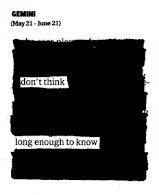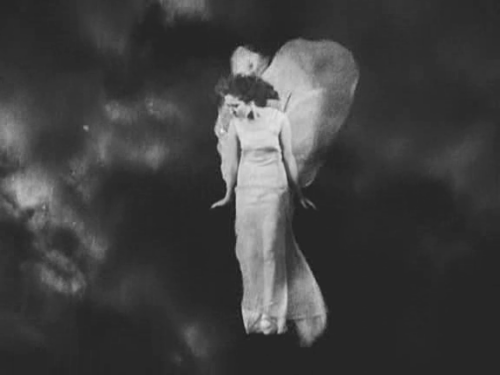Friday, April 10, 2020
And her all too human grief
The Baltic Sea froze in 1307. Birds flew north
From the Mediterranean in early January.
There were meteor storms throughout Europe.
On the first day of Lent
Two children took their own lives:
Their bodies
Were sewn into goatskins
And were dragged by the hangman’s horse
The three miles down to the sea.
They were given a simple grave in the sand.
The following Sunday, Meister Eckhart
Shouted that a secret word
Had been spoken to him. He preached
That Mary Magdalene
Sought a dead man in the tomb
But, in her confusion, found
Only two angels laughing. . .
This was a consequence of her purity
And her all too human grief.
The Baltic Sea
Also froze in 1303—
Nothing happened that was worthy of poetry.
By Norman Dubie, “An Annual of the Dark Physics” from The Mercy Seat: Collected & New Poems 1967-2001 (Copper Canyon Press, 2001). www.coppercanyonpress.org
Wednesday, April 1, 2020
merely the absence of something else
"We
cannot see the dark, but we can see in the dark. Black does not exist, it is
merely the absence of something else. The eye perceives rays, we don't see
objects, we don't see other people, we don't see the world, we see only the
light that they reflect. I don't see you, only the light that collides with
your body in the morning and ricochets back, to me. I catch it, all of it. We
are born into light, and throughout our entire lives this is what we see, we
pry open our eyes, and all we can see is light."
-
Frøydis Sollid Simonsen
from Every
Morning I Crawl Out of the Ocean
link
the-night-picture-collector:
“I believe in the imagination. What I cannot see is infinitely more important that what I can see.”
- Duane Michals
the-night-picture-collector:
“I believe in the imagination. What I cannot see is infinitely more important that what I can see.”
- Duane Michals
Subscribe to:
Posts (Atom)





